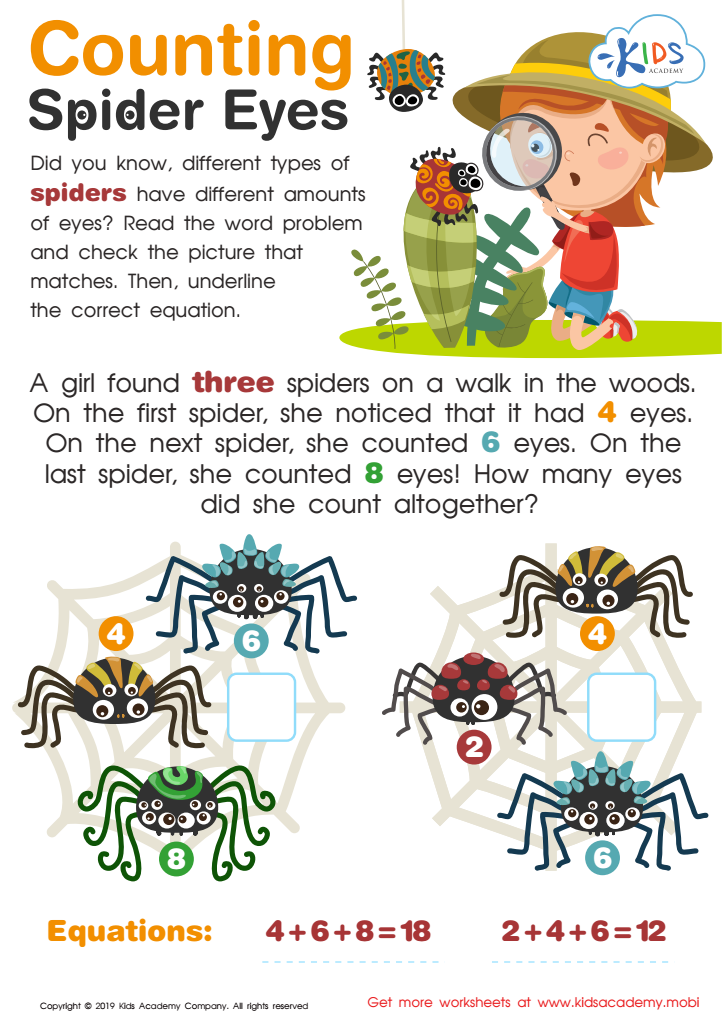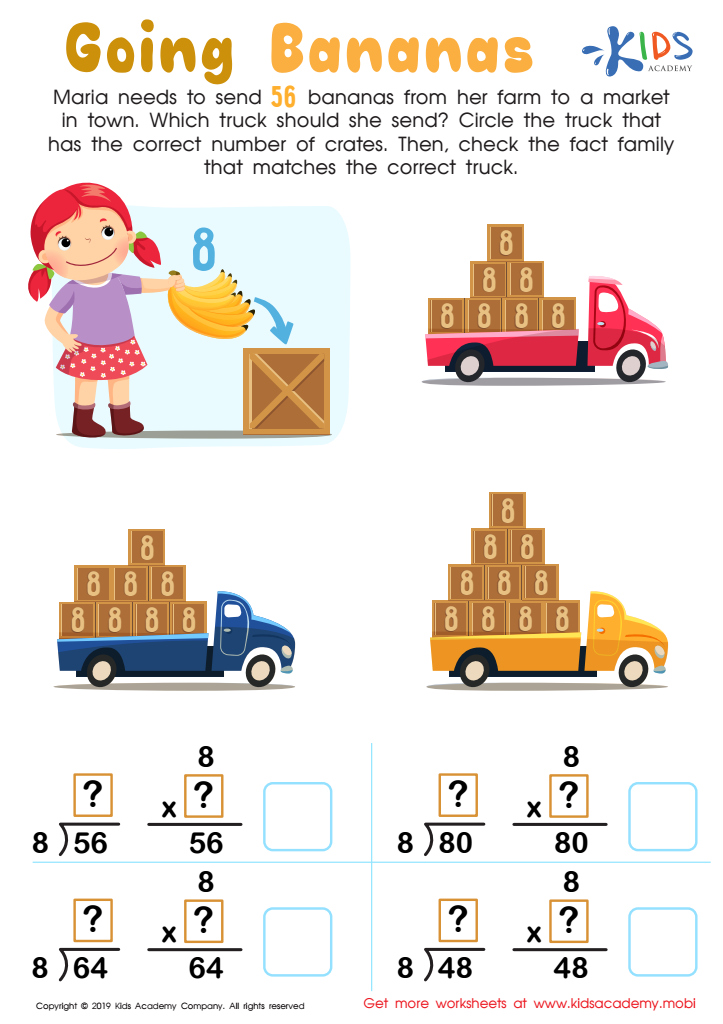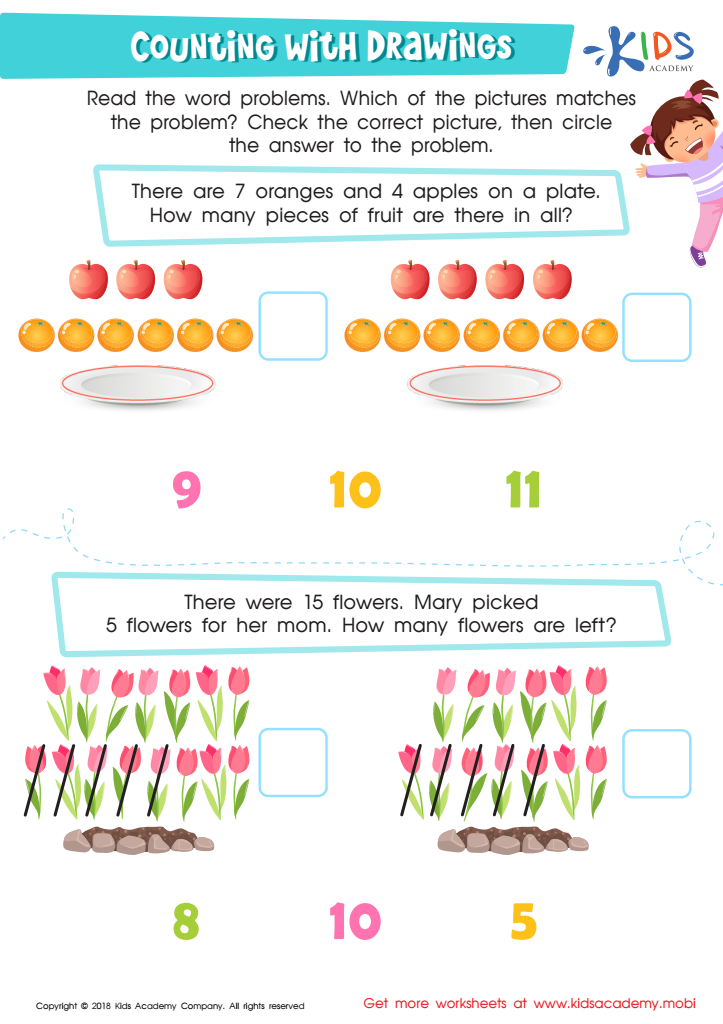Counting skills Normal Word Problems Worksheets for Ages 4-8
4 filtered results
-
From - To
Our "Counting Skills Normal Word Problems Worksheets for Ages 4-8" provide a fun and engaging way for young learners to enhance their counting abilities. Designed by education experts, these worksheets feature relatable scenarios and colorful illustrations that help children understand basic math concepts while solving word problems. Perfect for use at home or in the classroom, these worksheets support early numeracy skills, building a strong mathematical foundation. Encourage your little ones to tackle math challenges with confidence and joy. Explore our comprehensive collection and watch as they develop essential counting skills that pave the way for future mathematical success.


Counting Spider Eyes Worksheet


Adding Flower Petals Worksheet


Going Bananas Worksheet


Counting with Drawings:Fruits & Flowers Worksheet
Counting skills and word problems are foundational elements in early childhood education, setting the groundwork for quantitative thinking and problem-solving abilities that will benefit children throughout their academic careers and beyond. For ages 4-8, learning to count provides more than just the ability to recite numbers. It fosters an understanding of number concepts, sequences, and the fundamental idea of quantity, all critical for later mathematical learning.
Parents and teachers should prioritize these skills because they serve as a building block for more complex mathematical concepts. Mastery of counting also promotes cognitive skills such as memory, attention to detail, and logical reasoning. Engaging with normal word problems from a young age encourages children to apply their counting skills in practical contexts, enhancing their critical thinking and verbal reasoning too.
Furthermore, word problems help children grasp the relevance of math in everyday life, making learning more engaging and meaningful. This approach not only prepares them for future academic challenges but also helps in developing a positive attitude toward learning and problem-solving. In essence, focusing on counting skills and simple word problems equips children with crucial tools for success in school and instills in them a lifelong appreciation for mathematics.

 Assign to My Students
Assign to My Students





.jpg)










